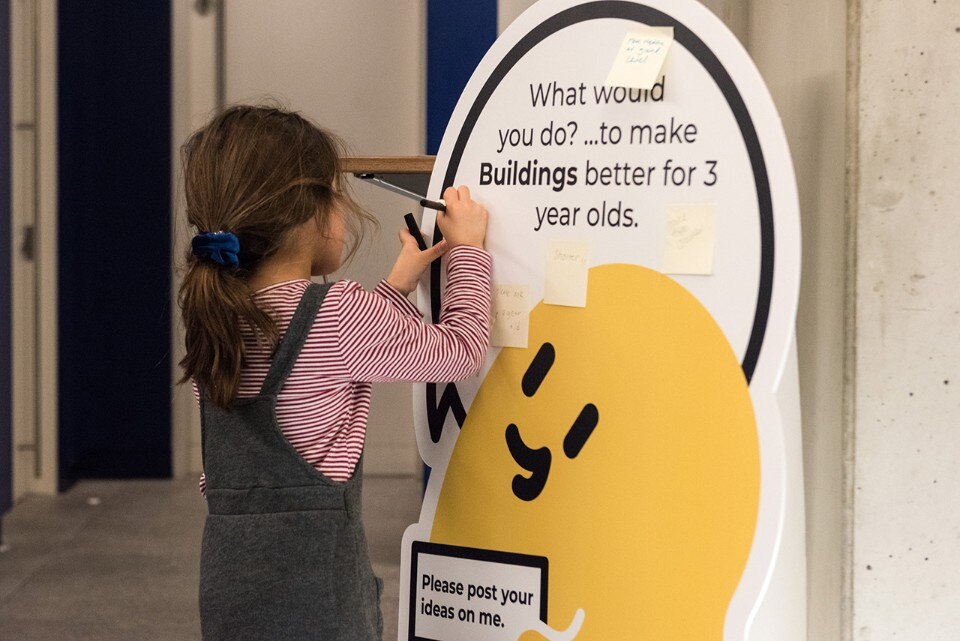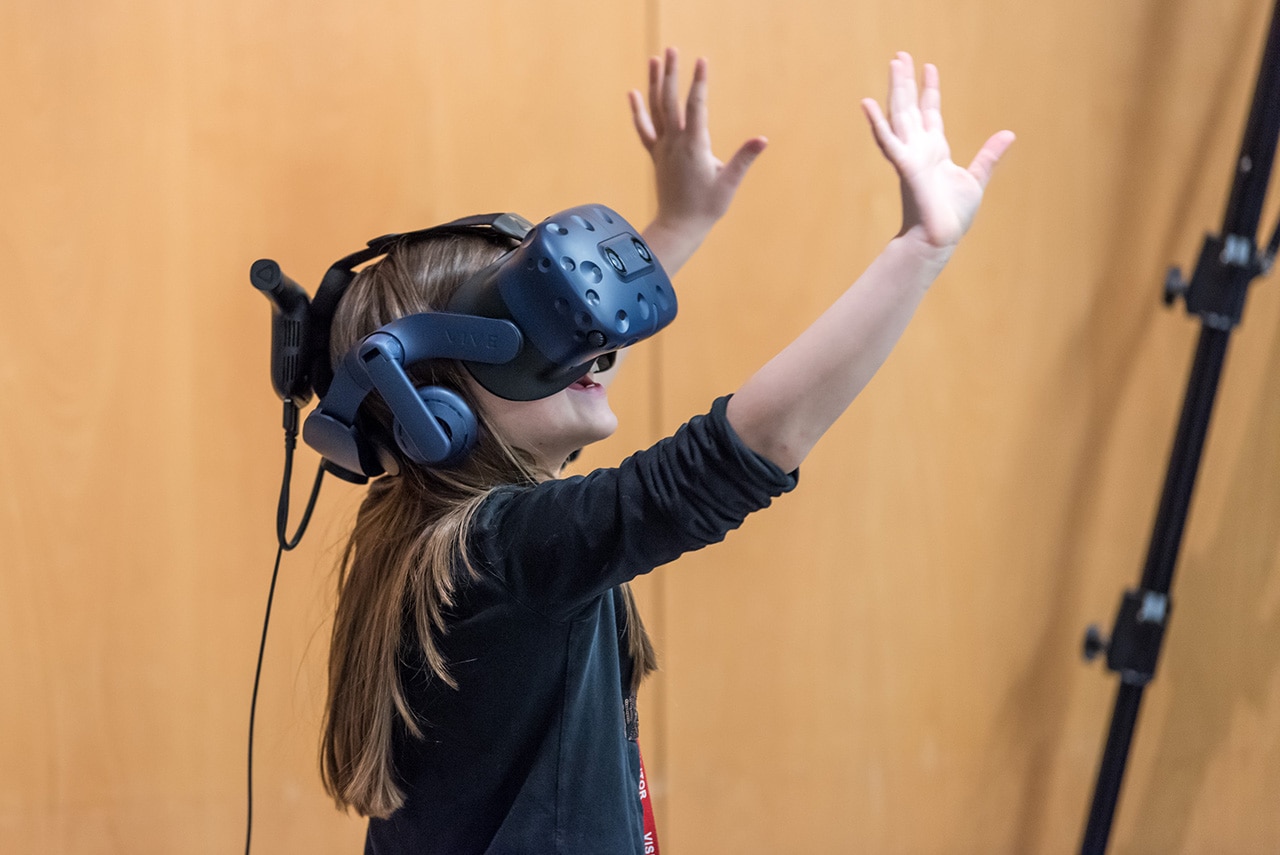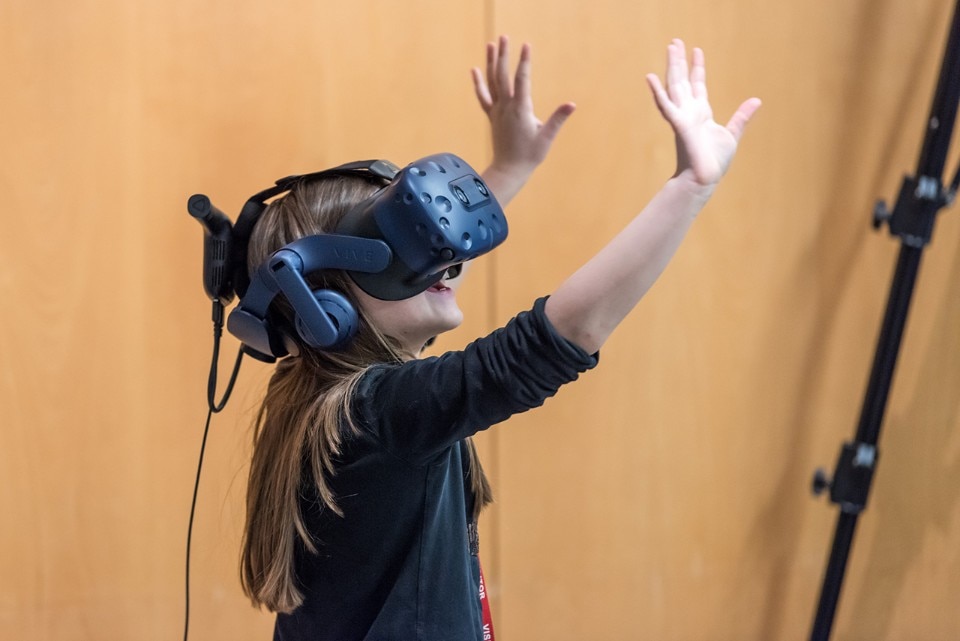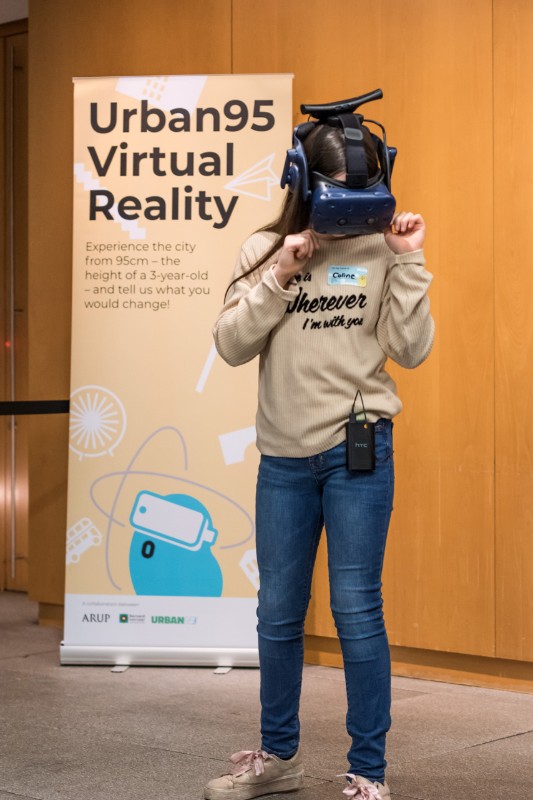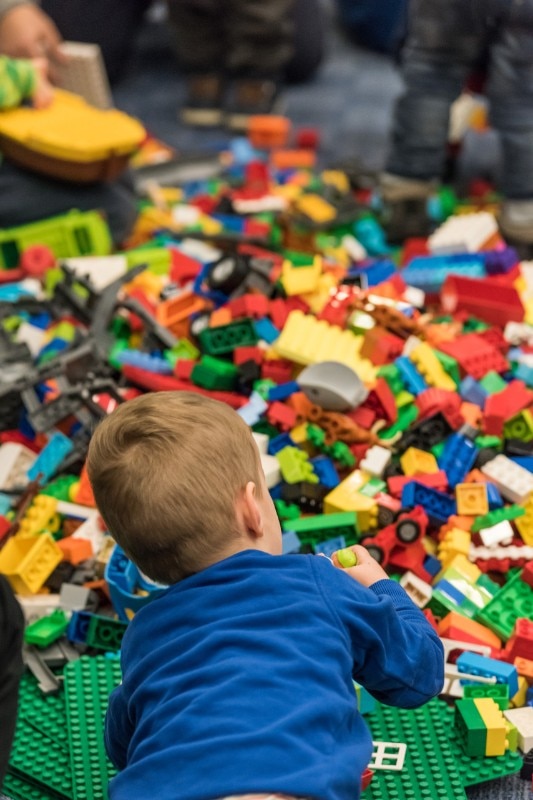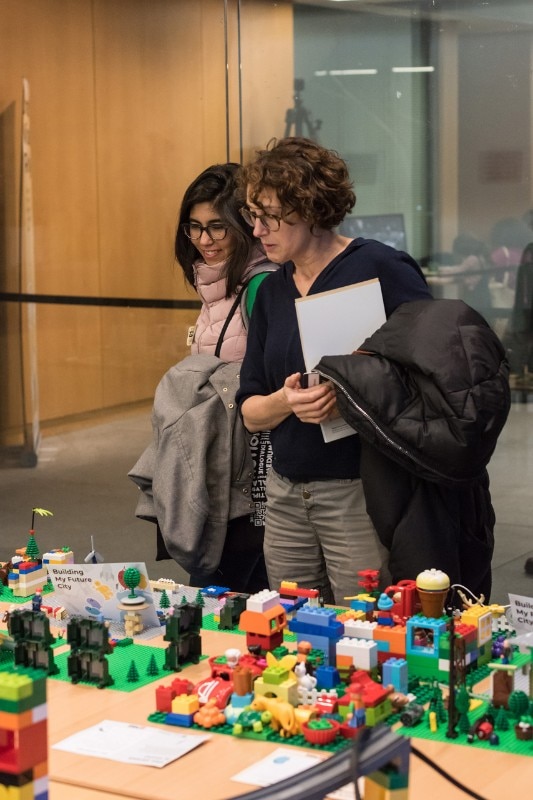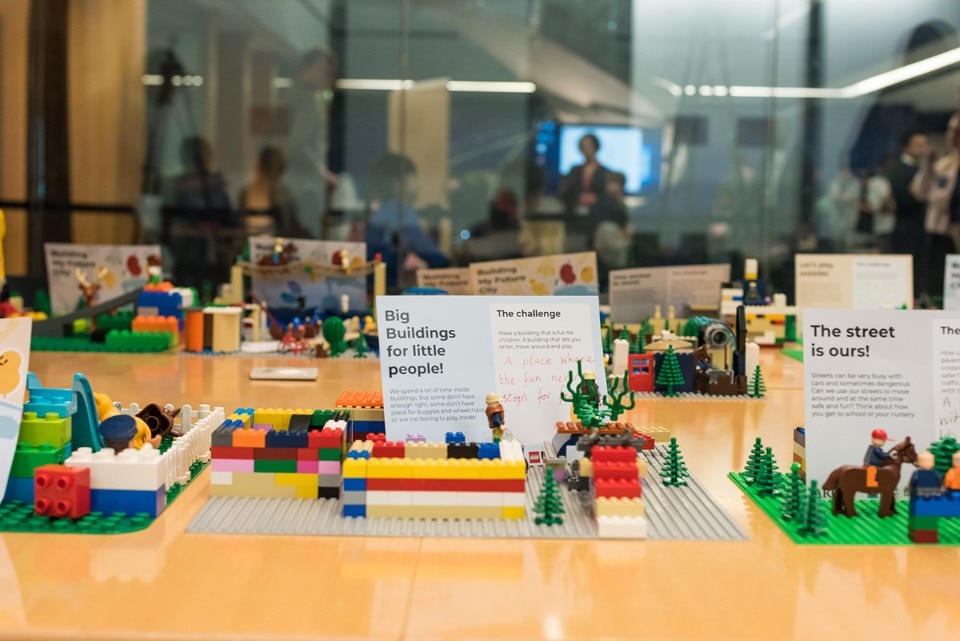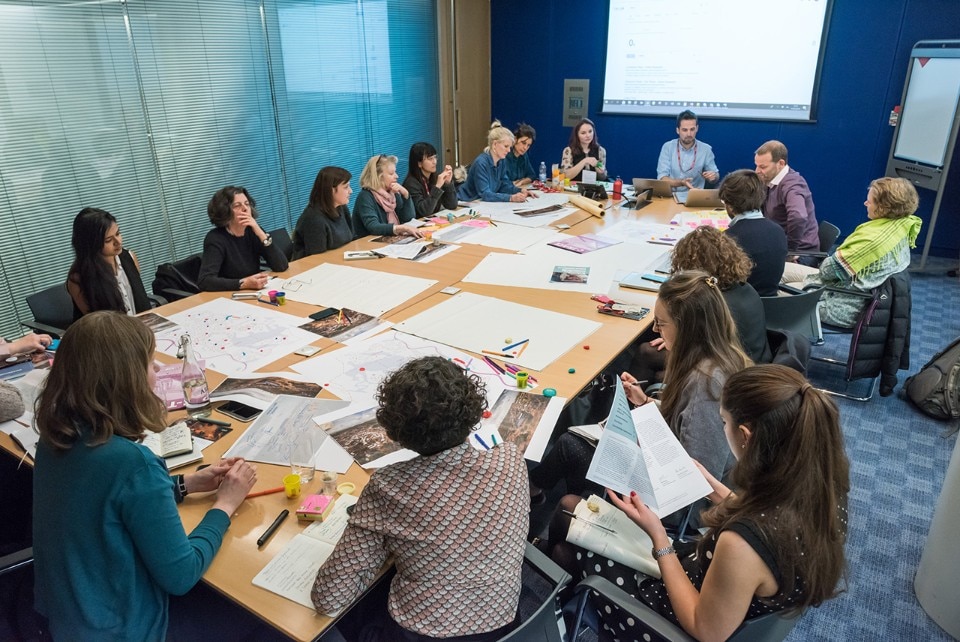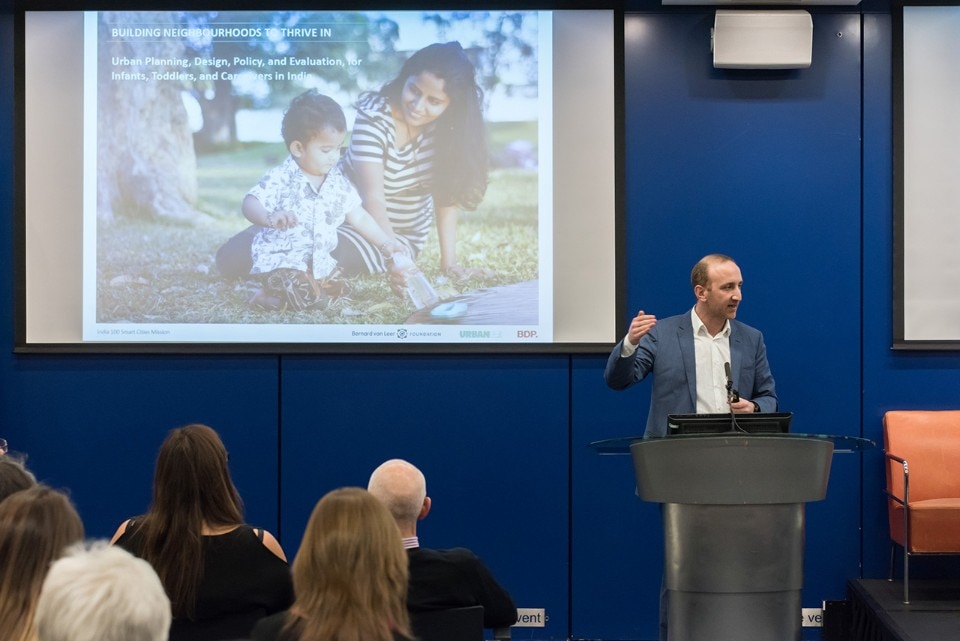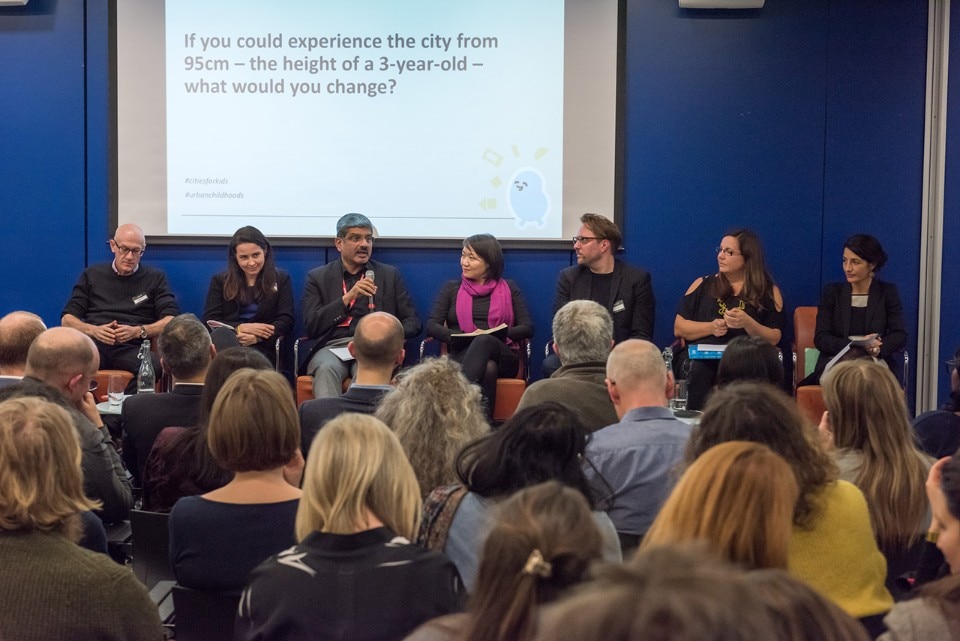The event, called Growing Up in the City, was held in ARUP’s London base to signal a new partnership with the Bernard van Leer Foundation, one that aims to promote research into cities designed for children. The project, overseen by ARUP’s not-for-profit International Development department, is crucial for the development of the city. The reasons for this should be obvious, but this is not in fact the case: cities – whether rich or with large zones of poverty – are built without thinking of children. Yet since more than half the world’s population already lives in cities – in Third World countries the urban birth rate is even higher – we need to change completely our perspective and designers have a role in all this. The choices made today will have a huge impact on the children of tomorrow, but hopefully too on those of today.
As Sara Candiracci, Associate Director of the division, explains: “One of the goals of the partnership is to produce by 2020 a guide for child-friendly interventions in fragile contexts such as refugee camps or informal settlements. Fragile contexts are where we work – we have research running in three case studies in Kenya, Lebanon and South America involving Save the Children, the aim of which is to define basic standards for policymakers. Specifically for this partnership we have developed a new virtual reality tool that makes it possible to see the city from the eye level of a three-year-old child.” The partnership is an additional development of Urban 95, a programme which was launched by the Bernard van Leer Foundation in 2016 and which has already involved 41 countries.
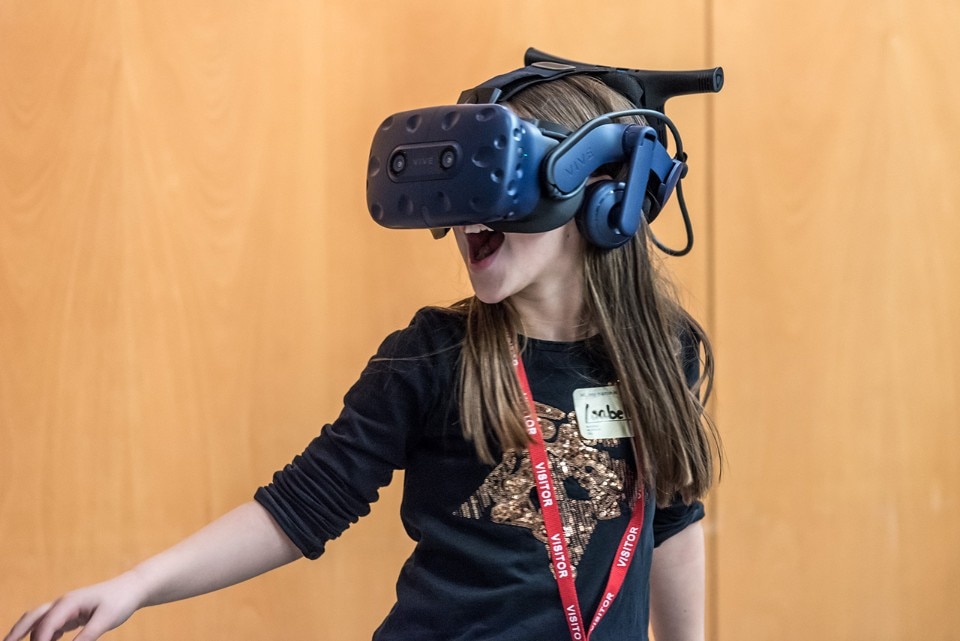
Four workshops were held during the day of presentations. One was given over to children themselves and sponsored by LEGO: I was struck by how the British children had designed so many spaces where they could interact with animals. In a similar workshop held in Milan in December with Winy Maas, the children had thought up green open spaces – but there was no mention of any animals!
The other workshops, held by the Bernard van Leer Foundation and Unicef, and by Save the Children and NACTO, were structured as brainstorming sessions and saw individuals with different areas of professional expertise participating, as befits an open approach.
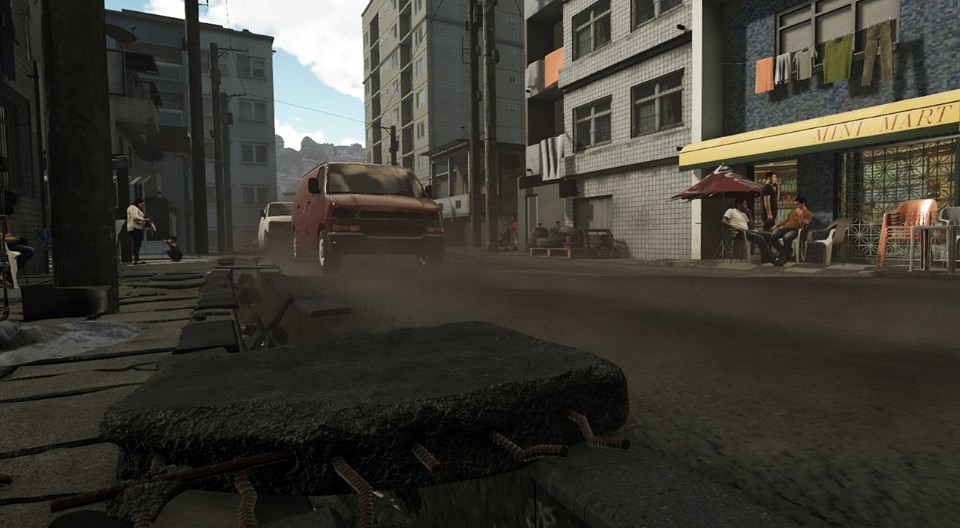
In summary, the areas that need work are those tied to the well-being of children – the world’s future adults – who live and will live in cities. The question is one that should be addressed from multiple different viewpoints. With health, for example, there is the effect of pollution on respiratory health: today’s cities were designed for the car and not for children. In terms of the relationship between the generations, adults taking care of children – parent, educators and grandparents – live in the same spaces when they spend time together, so what works for one group must also work for the others. The impact of the experiences of early childhood on mental health, and more generally on an individual’s development, takes on specific characteristics for those living in cities. It has now been proven that play is a form of learning, just as it is for many other animals. It has been shown too that it is fundamental to play outdoors – something that is not at all straightforward for a child in a slum or one living in a 40-floor block. Security is understood as ways of moving from one place to another that are safe and reassuring. All these key points can and should be tackled with a bottom-up approach that can raise awareness among administrators first and then be translated into concrete action.




